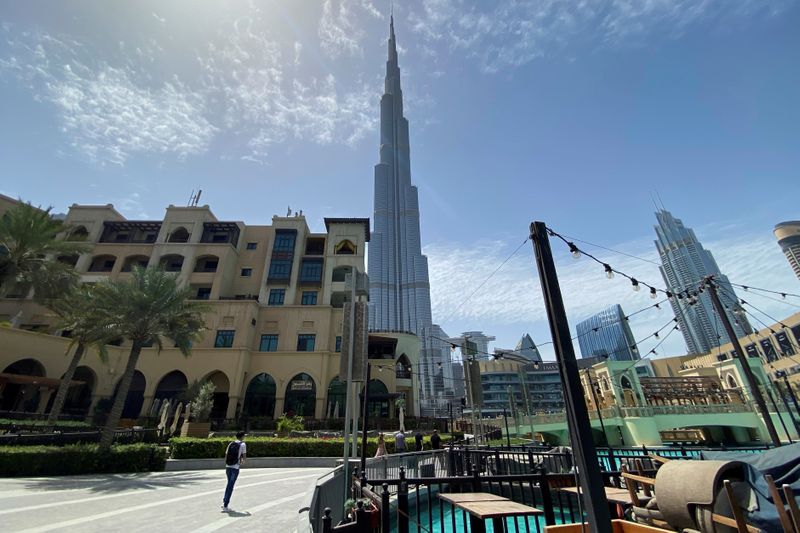DUBAI (Reuters) - Dubai's non-oil private sector was steady in June, the first time it did not contract since February, a survey showed on Thursday, after the emirate lifted many restrictions to stem the spread of the new coronavirus.
The seasonally adjusted IHS Markit Dubai Purchasing Managers' Index (PMI) increased to 50.0 in June from 46.0 in May, settling at the mark that separates growth from contraction.
"The latest PMI survey data offered hopeful signs for the Dubai non-oil private sector," said David Owen, economist at survey compiler IHS Markit.
"Some sectors were on the path back to normality, according to survey respondents, though others presented a more cautious picture, finding that demand in some areas, notably travel and tourism, was still extremely weak," he said.
Dubai, the Middle East's trade and tourism hub, has been hit hard by virus containment measures, while the emirate lacks the oil wealth of its neighbour Abu Dhabi.
Output in the non-oil economy rose to 53.0 in June from 44.8 in May and from a record low of 36.9 in April.
Employment, however, contracted for a fourth consecutive month.
"Despite higher demand, the hit to firms' revenues from the lockdown period meant several companies laid off staff to lower cost pressures," the PMI report said.
Sentiment for future activity improved for a second consecutive month in June, with more businesses optimistic about growth over the next year.
"Rising from a record low in April, business expectations were nonetheless much weaker than prior to the onset of the COVID-19 pandemic," the report said.
